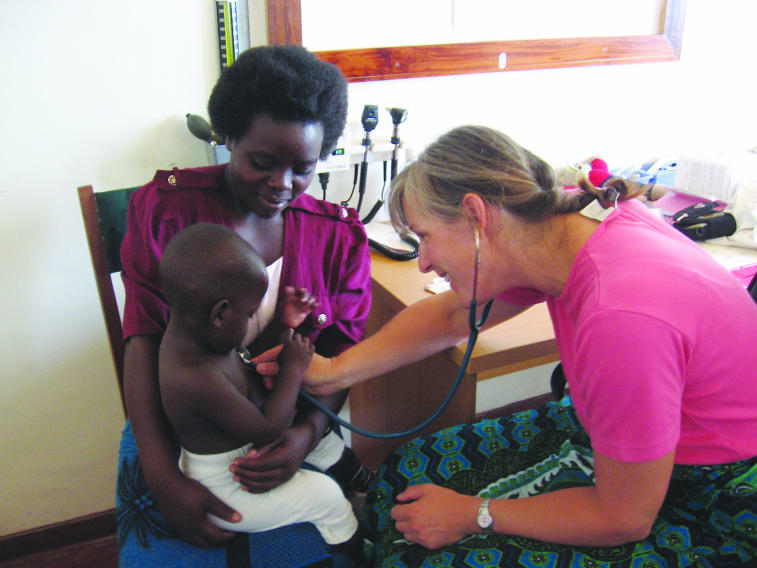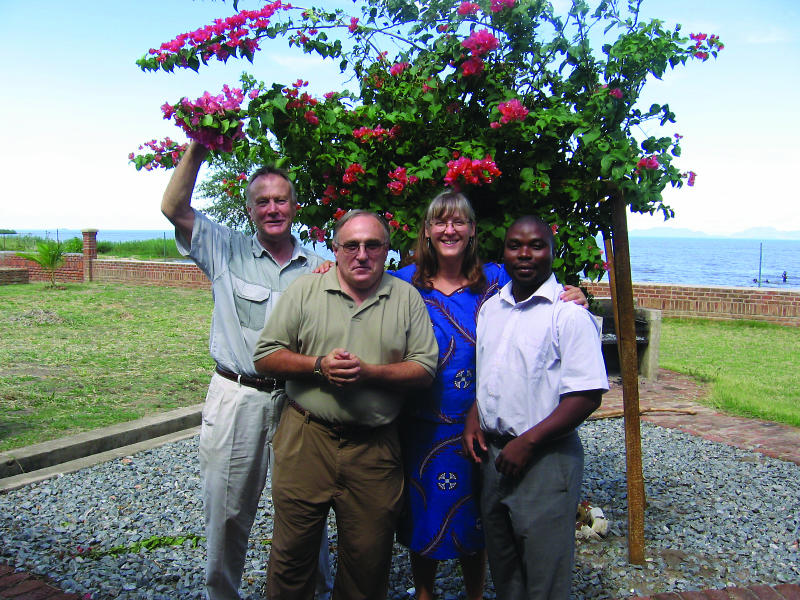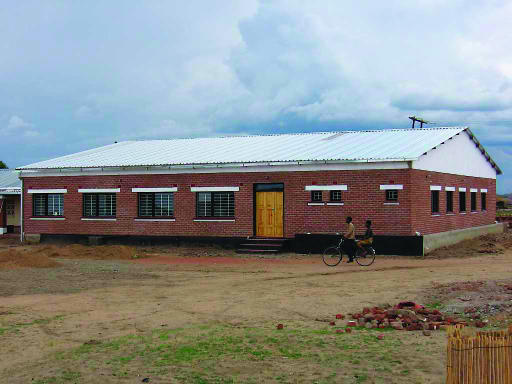I am a pediatric emergency physician in Calgary, Alta, and have been active in international health for more than 25 years. The last time I had been in Africa was in 1985 when I ran a district hospital in Lesotho in southern Africa. My husband and I had always wanted to return to the continent but career, children, and time got in the way. When those factors finally aligned, we were able to once again travel to and work in “deepest darkest Africa.” My tenure as Associate Professor of Paediatrics at the University of Calgary permitted me to take a 6-month sabbatical, which I used to further my expertise in international health, tropical medicine, and medical administration in Malawi, Africa.
The country
Malawi is a landlocked country in south-central Africa, made famous by the recent visit of Madonna and her adoption of a Malawian child. Before her visit, many people in Canada assumed that we were having a wonderful time in Maui, Hawaii!
The population of Malawi is about 12 million, in an area one sixth the size of Alberta. Malawi borders on Mozambique, Zambia, and Tanzania, and has received many refugees from Uganda, Rwanda, Burundi, and the Democratic Republic of Congo. It gained independence from Great Britain in 1964 and has had a democratic multiparty government in place since 1994. More than 90% of the population lives in the rural areas, resulting in a national economy based on agriculture, specifically tobacco, coffee, tea, sugar, and nuts.
Health system
Malawi has 27 districts in 3 regions. Each health district is led by a district health officer—doctor, clinical officer, nurse, or medical assistant. With the extreme shortage of physicians in the country, nurses (2 to 4 years of training), clinical officers (4-year medical apprenticeship—no university degree), or medical assistants (2 to 3 years of apprenticeship) provide most of the medical care in clinics or hospitals, including performing cesarean sections and other surgical procedures. Some of the clinics are even empty because of lack of staff.
The life expectancy is 41 years with an infant mortality of 100 per 1000 population (compared with 6 per 1000 in Canada) and a maternal mortality of 1000 per 100 000 live births (compared with 6 per 100 000 in Canada). Human immunodeficiency virus (HIV) affects 15% of the population, but incidence is higher in selected areas, including our clinic site where it is 20%. Tuberculosis, malaria, helminth infections, and diarrheal diseases are also major causes of morbidity and mortality.
Lifeline Malawi
My sabbatical leave allowed me to work as the Medical Director for Lifeline Malawi, a non-government faith-based organization centred in Lilongwe with a clinic in Ngodzi (Salima District) and another opening in Kasese (Dowa District). The organization was started by Dr Chris Brooks, formerly a family physician in Calgary, and has been operating for about 9 years. Lifeline Malawi has about 35 employees, soon to increase to more than 50 with clinic expansion. The clinics deliver rural health care to the local population and an ever growing catchment area. Services include outpatient clinics, family planning, immunizations for children younger than 5, HIV counseling and testing, antiretroviral therapy, and partnership with the district health program for sanitation and communicable disease control.
The Ngodzi clinic is located on the shore of Lake Malawi. This location sees many patients with schistosomiasis, an infection resulting from fishing, bathing, and swimming in the snail-infested waters. Fortunately the number of hippopotamuses on the shores of the lake is low, so there isn’t too much associated trauma from hippo bites! The clinic has about 175 patients daily, Monday to Friday, and an ambulance that allows transportation of seriously ill patients to the district hospital 39 km away. Unfortunately, the government hospitals are frequently out of medications, so patients often end up back at the clinic site to be treated in too short a time.
In July 2006 we started working in the Kasungu and Dowa districts (about a 3-hour drive from the Ngodzi site) on an integrated project to eliminate child labour—especially in the tobacco fields. We worked with a food security group, water and sanitation specialists, and an organization that does community mobilization and education support. Lifeline Malawi is responsible for a rural health outreach program modeled on the Ngodzi clinic with the idea that if we can improve family health there will be less need for child labour and more opportunity for education. The Kasese clinic officially opened in June 2007, and there are already 8 mobile outreach clinics each month seeing about 300 patients at each location.
Many of the adult patients I treated had not seen a physician in more than 5 years because of limited access and poverty. The children were very malnourished due to local drought conditions and resulting food shortages. There were also high levels of HIV and AIDS, tuberculosis, and endemic parasitic conditions. This area clearly had unmet health needs that we are now starting to address.
Lifeline Malawi has several plans for future clinics: the establishment of tuberculosis diagnosis and treatment sites; an institution for comprehensive maternal services, including cesarean sections; expansion of the family planning program; nutritional support programs; and further enhancements to the HIV clinics, including pediatric treatment and supporting people living with AIDS. These plans will require growth from our traditional donor base of faith institutions and private gifts, to contributions from the corporate sector and granting agencies. Armed with the knowledge that $0.94 of every donated dollar goes into the field, we feel confident that the organization is putting the money to good use and will be able to attract additional funding.
Ongoing need
The end of my time in Malawi came too quickly. It was with a heavy heart that I climbed onto the airplane to return to Canada. I had indeed accomplished my sabbatical goals of getting more tropical medicine experience, establishing some educational and research connections with a rural clinic in Africa, and using my new project management skills. My family, especially my 2 youngest children (14 and 6 years old), had reaped the benefits of learning to live in a new culture with those who have a lot less than we do.
Unfortunately, I left Lifeline Malawi without a new Medical Director in place. The clinical officers and nurses do a fantastic job of managing many of the conditions with the few medications available, but their training is limited and they need medical guidance and support. The country of Malawi is working hard at trying to improve the health system, but it continues to need physician expertise at the bedside and in medical administration. I would encourage each of you to think about the possibility of using your expertise and time to do either a short- or long-term mission with Lifeline Malawi. Both Dr Chris Brooks and I would be happy to speak to any of you interested in the projects. Contact us through www.lifelinemalawi.com and start packing. Africa waits!
Footnotes
Competing interests
Dr Nijssen-Jordan is a Director on the Board of Lifeline Malawi.





